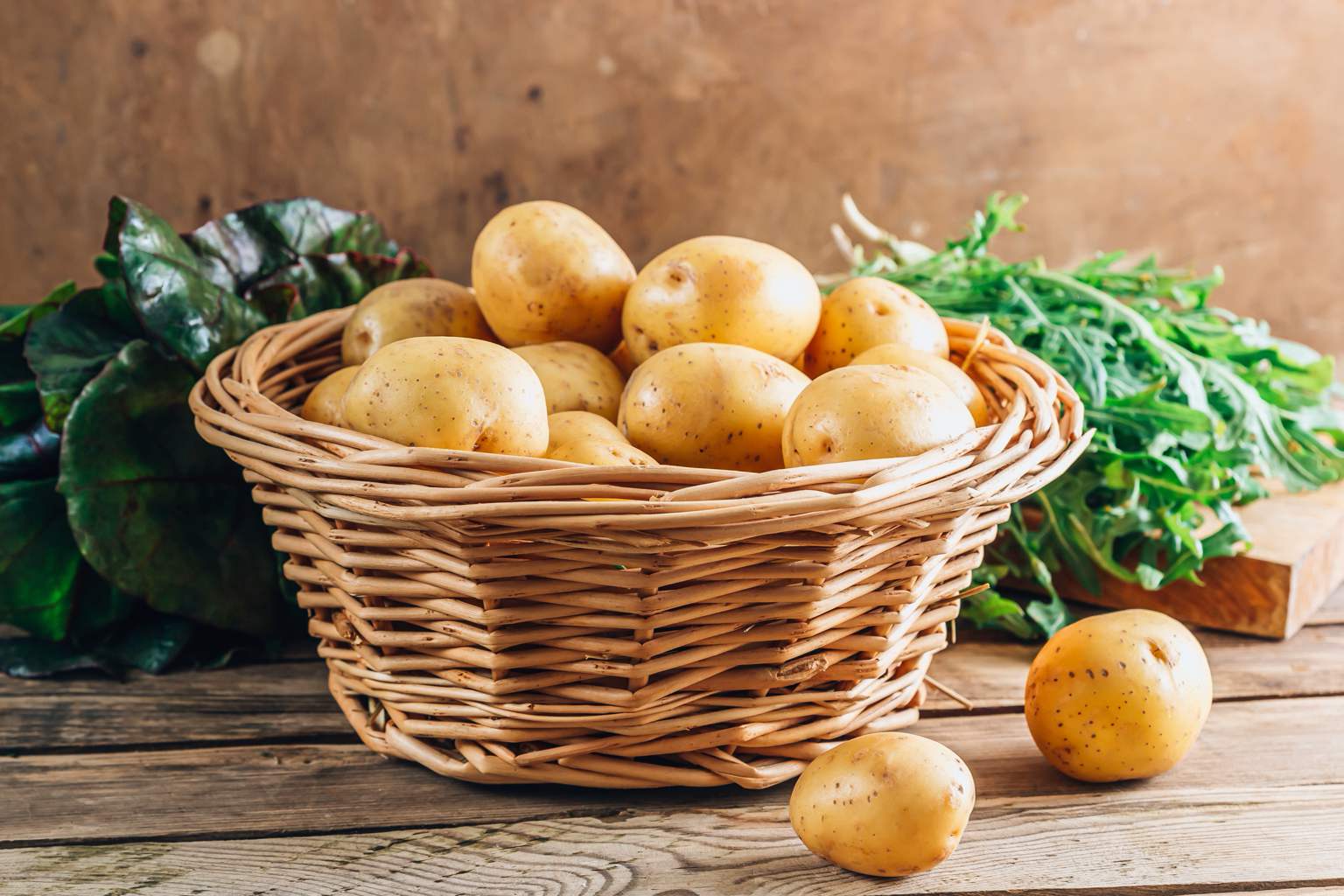Potatoes are kitchen staples, yet they often fall victim to premature sprouting and spoilage. What if a simple storage tweak could keep them fresh longer and save you money? Read on to discover the easy trick that protects your potatoes from sprouting and preserves their flavor and texture.
Why potatoes shouldn’t be stored with fruit
One common mistake people make is tossing potatoes into fruit bowls or keeping them near fruits like apples and bananas. While it seems harmless, this can dramatically speed up potato sprouting. That’s because many fruits release a natural gas called ethylene, which acts like a growth hormone triggering potato eyes to sprout.
To really prolong the life of your potatoes, it’s best to keep them completely separate from any ethylene-producing fruit. This little piece of knowledge has saved me multiple times from tossing piles of sprouted spuds that I thought were ruined prematurely.
Besides avoiding fruit, also steer clear of storing potatoes in brightly lit places. Exposure to light prompts potatoes to produce solanine, a bitter and potentially toxic compound that turns them green and affects taste negatively. Instead, find a dark, cool, and well-ventilated spot like a basement pantry, cellar, or shaded cabinet.
How to store potatoes for maximum freshness
Temperature, humidity, and container type are the three keys to keeping potatoes fresh. Aim for a storage temperature between 45 and 50 degrees Fahrenheit. Above that, potatoes tend to sprout quickly; below that, their starch converts to sugar, causing a sweeter, less desirable taste.
Humidity should be moderate to prevent shriveling but avoid dampness that can cause rot or mold. Using breathable containers such as paper bags, burlap sacks, or vented baskets allows air circulation and keeps moisture balanced.
Another great habit is to regularly inspect your potatoes for any signs of sprouting or soft spots and remove those immediately. This prevents any spoiled potatoes from contaminating the rest. It’s a small chore but makes a huge difference in longevity.
Why proper potato storage matters
Caring about how you store potatoes goes beyond convenience. It preserves the nutritional quality, taste, and texture of your food. When potatoes sprout, the nutrients divert to the new growth instead of the tuber itself, impacting flavor and mouthfeel.
Moreover, avoiding sprouted or rotten potatoes reduces food waste significantly. Many households discard partially sprouted spuds thinking they’re unusable, but with right conditions, sprouting slows down, and potatoes stay fresh for weeks.
Personally, adjusting how I store potatoes has saved me an average of $10–$15 a month on groceries. Being mindful of these details also encourages a more sustainable kitchen with less needless waste.
Extra tips for those without cool storage spaces
Not everyone has access to a cool basement or cellar, but don’t worry—there are other ways to extend freshness. Consider investing in specialized food storage containers designed to help regulate moisture and airflow. These can be a game-changer for apartment dwellers.
Alternatively, traditional natural methods such as storing potatoes in layers of dry sand or wood ash work surprisingly well for maintaining stable conditions and preventing sprouting. These age-old techniques have been passed down in rural communities for good reason.
If you want to try something simple now, just keep your potatoes in a paper bag or perforated basket inside any dark cabinet. Even small adjustments like better container choice and separation from fruit can radically improve your potato shelf life.
Have you tried any clever potato storage hacks that really worked? Share your experiences or questions in the comments below. Let’s swap tips and keep our kitchens waste-free and delicious!
